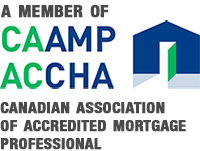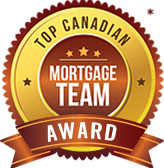


My husband and I were very fortunate to find Jesse Brun and utilize his services when it came to renewing our mortgage. In fact, we have used Jesse’s services twice over the last few years. Jesse is a dedicated mortgage broker who goes that extra mile to find his clients the best deal possible. Throughout our time dealing with Jesse, it has always been via email or phone. That has not interfered with his services. He has handled all the transactions with much professionalism. Would we use Jesse again should the need arise? You bet…. Great service…..Thanks Jesse
JESSE BRUN
Mortgage IntelligenceLicense #10428
Mortgage Broker (NB)
Mortgage Agent Level 2 (ON)

Self-employed HELOCS Oakville
If you are a self-employed individual in Oakville, and you are looking for a way to access the equity in your home, a HELOC may be the solution you need. A HELOC allows you to borrow against the equity you have built up in your home, and it can be an excellent way to get the funds you need to grow your business, make home improvements, or pay off high-interest debt. In this article, we'll take a closer look at HELOCS for self-employed individuals in Oakville, and provide you with the information you need to make an informed decision.
What is a HELOC?
A HELOC is a type of loan that allows you to borrow against the equity you have built up in your home. Equity is the difference between the value of your home and the outstanding balance of any mortgages or liens you have against it. For example, if your home is worth $500,000, and you have a mortgage of $300,000, you have $200,000 in equity.
With a HELOC, you can borrow against this equity. The amount you can borrow will depend on the lender's policies, your credit score, and the amount of equity you have in your home. HELOCS are secured loans, which means that your home will serve as collateral for the loan. This can make them easier to qualify for than unsecured loans, but it also means that if you fail to make your loan payments, you could risk losing your home.
HELOCS for Self-Employed Individuals
If you are self-employed, you may find it more challenging to qualify for a traditional HELOC. This is because lenders may view self-employment as a higher risk than regular employment. However, there are still options available to you.
One option is to work with a lender who specializes in HELOCS for self-employed individuals. These lenders understand the unique financial situations of self-employed individuals and are more likely to approve your loan application.
Another option is to provide additional documentation to prove your income and financial stability. This may include tax returns, bank statements, and other financial records. By providing this documentation, you can demonstrate to the lender that you are a low risk and increase your chances of approval.
Benefits of a HELOC for self-employed individuals in Oakville include access to funds at a potentially lower interest rate than other types of loans, the ability to use the funds for a variety of purposes, and the potential to improve your credit score by making on-time loan payments.
In addition to using HELOCS to pay for large expenses or consolidate debt, they can also be used to make home improvements. Homeowners can use the equity in their homes to fund renovations and upgrades that can increase the value of their property.
Some common home improvements that homeowners use HELOCS for include kitchen and bathroom remodels, adding a new room or space, replacing roofing or siding, upgrading HVAC systems, or installing new flooring. These improvements can not only increase the value of the home but also improve the homeowner's quality of life.
When considering a HELOC for home improvements, it's important to keep in mind that the loan amount should not exceed the projected increase in the value of the home. This will help ensure that the investment is worth it and that the homeowner can recoup the costs when they eventually sell the home.
In conclusion, HELOCS can be a valuable tool for self-employed homeowners in Oakvillewho need to finance large expenses or make home improvements. They offer competitive interest rates and flexible repayment terms, making them a popular choice for many homeowners. Our mortgage office can help homeowners navigate the process of obtaining a HELOC and provide guidance on how to use the funds responsibly. Contact us today to learn more about how a HELOC can benefit you.
How Do You Apply for a HELOC for Self-Employed Individual?
If you're interested in taking out a HELOC in Oakville, the first step is to contact our mortgage office at (888)878-4660 or fill out the short form on the top left-hand side of our website. We'll work with you to determine whether a HELOC is right for your needs and help you through the application process.
Below is a list of words that are associated with getting a home mortgage loan. We are providing you the list along with their definitions to help your mortgage journey:
Fixed-rate mortgage: a type of mortgage where the interest rate remains the same for the entire term of the loan.
Adjustable-rate mortgage (ARM): a type of mortgage where the interest rate can change over time, typically after an initial fixed-rate period.
Debt-to-income ratio: a comparison of a borrower's monthly debt payments to their monthly income, used to determine their creditworthiness.
Mortgage insurance: insurance that protects the lender in case the borrower defaults on the loan.
Homeowner's insurance: insurance that protects against damage to a home or other property, typically required by lenders as a condition of a mortgage loan.
Points: fees paid by the borrower to the lender at closing in exchange for a lower interest rate.
Interest-only mortgage: a type of mortgage where the borrower only pays interest on the loan for a certain period of time before starting to pay off the principal.
Home equity loan: a type of loan where the borrower borrows against the equity in their home.
Appraisal: a process where a professional appraiser determines the value of a property.
Title: the legal right to own and use a property.
Lien: a legal claim against a property used as collateral for a debt.
Pre-approval: a process where a lender reviews a borrower's financial information and determines how much they are qualified to borrow.
Second mortgage: a type of mortgage where the borrower uses their home as collateral to take out a second loan.
Title search: a process in which a title company reviews public records to ensure that there are no outstanding liens or other claims against a property.
Home equity line of credit (HELOC): a line of credit that allows the borrower to borrow against the equity in their home.
Equity: the difference between the value of a property and the outstanding balance of any mortgages or other liens against the property.


